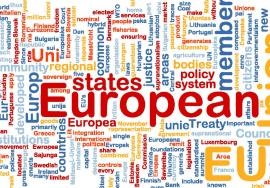Essays
These are the Essays or original research articles recently published on Perspectives on Federalism.
The practice of federalism in Nigeria had undergone different stages of structuring to resolve salient political issues. However, despite each change to the structure, the clamour for further change has not aba...
Read more...
Ever since the European Union came into existence many theories have addressed the state of European integration. This paper tries to offer a further interpretation building on the principal-agent concept. The ...
Read more...
In this article I explore the judicial dimension of federal systems from a subnational perspective. The findings show that regardles of the type of federalism subnational courts of last resort underscore ...
Read more...
Secession in a EU context analysed from a multilevel governance unravels that there is in fact room EU interference in secessionist conflicts. Nevertheless, a balance should be struck between such commitment ...
Read more...
It has been years now that the scientific community is warning about the gravity of climate change consequences and about the need to effectively respond to it. However, the climate crisis just seems to get wor...
Read more...
This study examines the interplay between federalism and interborder conflict between the Tigrai and Amhara regions of Ethiopia. To this effect, secondary data, both qualitative and quantitative, were collected...
Read more...
By demonstrating the importance of the own source of EU revenue, rather than focusing solely on the size of its budget, we can understand that financing the EU is not a ‘zero-sum’ game. Therefore, we use th...
Read more...
This article provides an analysis of the recent negotiations between the European Union (EU) and the representatives of the African, Caribbean and Pacific Group of States (ACP) for the signature of a new agr...
Read more...
Immediately after the formation of the state of Kerala, general election was held to the Kerala State Legislative Assembly. In this election, the communists came to power in Ker...
Read more...
In 1991, Colombia shifted from a territorial regime that combined shared rule with limited self-rule to the opposite configuration: extensive self-rule without shared rule. The radical shift between these two h...
Read more...
Eight states in Africa that have federal or federal-type government systems and most of these federations emerged in the post-Cold War period. The African federations are in var...
Read more...
Unlike most other federal states, the Belgian federation has kept the organisation of the judiciary as a federal competence. The reasons are historical, principled, practical as...
Read more...
This article analyses the model of judicial federalism that has developed in the Federal Republic of Germany. As the constitutional history of Germany reveals, federal regulatio...
Read more...
Political rhetoric aside, has Canada, 150 years after its foundation, achieved its goal of preserving pluralism? How is pluralism defined within the Canadian framework? What was the judiciary’s contribution t...
Read more...
In Argentina the repercussions on the judicial system deriving from the territorial allocation of power are marked by peculiar features that make this experience not fully ascribable to what can be defined as �...
Read more...
The thematic focus of this issue of Perspectives on Federalism shall analyse phenomena of pluralism in the judiciary of federal systems: ‘Jurisdiction and Pluralisms: Judicial Functions and Organisation in...
Read more...
Judicial federalism has generally been neglected by scholars in comparative federalism. However, this topic is quite relevant for a proper understanding of the distribution of competences in a federal order and...
Read more...
This article provides a historical reconstruction of the normative dimension (principles, norms, values) of EU-ASEAN relations, with particular reference to the EU’s inclination and attempts to make them an i...
Read more...
Horizontal intergovernmental forums that bring together the constituent units of a federation are increasingly common. This article examines the origin, organization and purpose of the premium horizontal interg...
Read more...
In December 2019 the EU Commission presented the European Green Deal as directly connected with the Commission’s strategy to implement the United Nation’s 2030 Agenda. More recently, the Communication from ...
Read more...
COVID-19 has posed several challenges at the national level with governments adopting various policies to counter its spread. Nonetheless, the transnational nature of pandemics ...
Read more...
Does European integration impact on minority nationalism? Is there evidence that processses of European integration exacerbate or moderate minority nationalist tendencies in member states? Post-2010 developm...
Read more...
Climate change will probably constitute the most serious security challenge that humanity will face in 21st century. The extreme complexity of both the causes and the consequ...
Read more...
Most traditional federal theory remains rooted in the notion that asymmetrical constitutional arrangements within a state structure are somewhat exceptional. According to contemporary federal theory, however, r...
Read more...
This paper examines the development of fiscal federalism in Somalia to reveal the challenges this unique country is facing and, based on the findings, propose and agenda for reform. Interviews, direct observati...
Read more...
The purpose of this paper is to analyse the role and place of oil and gas politics in the Iraqi Federation. This aspect is investigated in the relationship to ethnic conflict. These two features are considered ...
Read more...
This paper aims at analysing the content of the PIF Directive and assessing its transposition into the Spanish Law. To achieve these objectives, this paper starts with a detailed study of the criminal law oblig...
Read more...
Devolution and the associated mechanisms of governance, such as power-sharing, limited government, a reformed system of public administration and civic engagement, and its features that include the protection o...
Read more...
Israel is a small nation, it features natural areas that are poor in resources, has a mixed population with different languages and religions, boats a strong army and hold a crucial geographical position: attri...
Read more...
Food security is a hugely important and complex issue. Such complexity is demonstrated, inter alia, by the lack of a consistent definition of food security under the international policy framework. Of the vario...
Read more...
The Euroscepticism that led to the result of the Brexit referendum is not new, but can actually be traced back hundreds of years. This article explores Euroscepticism by comparing the modern EU with the Europea...
Read more...
In this paper, I examine the degree and causes of judicial activism in a German subnational constitutional court. This research goal entails two dimensions. On the one hand, I explore whether and to what extent...
Read more...
The prime objectives of this study are to examine the perceptions and attitudes of Somalis toward federalism, as well as the challenges related to its adoption. The study gathered data via a self-administered o...
Read more...
This Article addresses Congress’s prerogative to implement non-self-executing treaties. In construing Congress’s Necessary and Proper Clause authority in this area, most commentators have argued that it is ...
Read more...
Nowadays, the European Integration process is challenged by a rise in anti-establishment parties proposing policies reactionary to globalization. Italy, one of Europe’s founding nations and largest economies,...
Read more...
The 2019 European elections are characterised by many novelties and paradoxes: for the first time they have acquired a high political salience, also thanks to the cleavage between nationalist and pro-EU part...
Read more...
The elections for the European Parliament that will take place on 23-26 May 2019 will most probably disprove the second-order nature of the European elections and invert the steady decline in voter turnout, f...
Read more...
At the end of May 2019, European citizens will be called to elect their representatives to the European Parliament. These elections are both uncertain, as the situation in which they intervene is unique, and cr...
Read more...
The purpose of the present paper is to find a theoretical-legal basis for the recent innovative decisions by the Colombian Supreme Court of Justice and by the Inter-American Court of Human Rights on the issue...
Read more...
This paper investigates the complex relationship between asymmetry and the principle of non-discrimination from the perspective of subnational fundamental rights. The research question of this paper concerns th...
Read more...
Environmental protection and sustainable development are competences that the EU is entitled to integrate into the definition and implementation of its policies. However, shared competences in these areas are s...
Read more...
For a long time considered, improperly, a sort of ‘nuclear’ option, Article 7 TEU is the key EU Treaty provision in the field of values enforcement. In the context of the Union’s current rule of law crisi...
Read more...
In 2017, a new Joint Parliamentary Scrutiny Group (JPSG) was created to enable members of the national parliaments of the EU and the European Parliament to exercise joint oversight of the EU agency for police c...
Read more...
The provision of Article 13 TSCG to create an Interparliamentary Conference was the starting point for long discussions after which national parliaments and the European Parliament eventually reached a compromi...
Read more...
This contribution proposes a framework of transnational parliamentarism to study inter-parliamentary cooperation, and applies it to the interparliamentary conference on CFSP/CSDP. It asks to what extent the IPC...
Read more...
COSAC has played an active role in fostering and developing interparliamentary cooperation since it has proven to be an effective model that has helped shape a supranational layer of influence for NPs. The cent...
Read more...
The EU Speakers’ Conference has experienced a ‘second youth’ after the entry into force of the Treaty of Lisbon by playing a ‘quasi-constitutional’ role in inter-parliamentary cooperation, and in part...
Read more...
The article draws comparisons between inter-parliamentary cooperation in the European Union and at the international level. It recognises that, notwithstanding a strong international imprint, inter-parliamentar...
Read more...
When ethnic groups negotiate self-government arrangements, ‘ethnic sovereignty’ lies boldly at the heart of their security considerations. The constitutional nature of self-determination and the extent of t...
Read more...
The aim of involving state members in reforming federal constitutions is to guarantee them the autonomy that they have been constitutionally granted. It also prevents reform from being carried out unilaterally ...
Read more...
Parliamentary administrators have to cope with a complex and ever-changing procedural framework, as well as with conflicting demands from the policy side. Nevertheless, their role in inter-parliamentary coopera...
Read more...
Interparliamentary conferences and other permanent forums for interparliamentary cooperation are blossoming in the European Union. Following more or less lengthy negotiations between national and European parli...
Read more...
The House of Lords is the world’s longest-established and probably best-known second chamber. Wholly unelected, with most members appointed for life, it appears a vestige of the ‘elite’ form of bicamerali...
Read more...
The Spanish Constitution defines the Senate as 'Chamber of territorial representation'. But in the Senate the provinces are represented, not the Autonomous Communities. The Senate is a Chamber of ‘sober secon...
Read more...
Belgium was established in 1830 as a unitary state with a bicameral parliament, with symmetrical powers for the upper and the lower house. While federalism and bicameralism are often considered a pair, the Belg...
Read more...
The German Basic Law constitutes federalism as a unique political system which is characterised by intertwined decision-making of the Federation (Bund) and the component units (Länder). The executives of the t...
Read more...
According to many legal and political scientists the Austrian Bundesrat is generally considered to be a paradigmatic example of a politically and legally weak second chamber embedded in a strongly centralised f...
Read more...
This paper presents the Swiss Ständerat as a model of perfect bicameralism. It looks at the constitutional design of the second Chamber, examines the evolution of the Ständerat and critically assesses its cur...
Read more...
Discussions regarding the functional design of second chambers in federal or quasi-federal systems seem to focus mainly on legislative functions. Thus, extra- or non-legislative functions related to the executi...
Read more...
Contemporary U.S. federalism particularly since the late1960s has evolved over the course of pluralism alternating exercisable governmental powers between the federal and state governments. The complexity of th...
Read more...
Legislative functions of federal second chambers are not a homogeneous set of powers, but require comparison and classification. First, the paper will examine the legislative functions of the second chambers of...
Read more...
This article briefly explores the reasons why the Committee of the Regions (CoR) has only partially accomplished its representative function. It is divided into three parts. In the first part I argue that the a...
Read more...
The paper contends that bicameral systems, irrespective of their differences in composition and powers, are unfit to represent territorial interests in the national decision-making process, except in some resid...
Read more...
In federal and regionalised states, bicameralism constitutes shared rule between levels of governments. At the same time, second chambers serve as a safeguard protecting self-rule of decentralised governments a...
Read more...
An analysis of the structure of parliaments in European countries shows that a wide range of options developed across the centuries. However, many of these patterns (among which tetracameralism, tricameralism, ...
Read more...
The aim of this contribution is to make some points on the distinction between ‘perfect’ (or equal) and ‘imperfect’ (or unequal) bicameralism and its relevance to contemporary discussions about second c...
Read more...
In a global context where popular referenda are increasingly used to decide contested issues, this paper aims at exploring the framework in which, in October 2017, two referenda took place in the Italian northe...
Read more...
This paper evaluates the second-generation theory (SGT) of fiscal federalism. It spells out the main arguments of the theory and discusses the fiscal architecture of Nigerian federalism with a view to using the...
Read more...
The Council is a crucial intergovernmental institution of the European Union. However, the complex, opaque and consensual character of the decision-making process in the Council puts its legitimacy into questio...
Read more...
The Treaty of Lisbon introduced a new system of weighted votes in the Council, which radically departs from the principles on which the distribution of votes between the Member States of the EU was based for mo...
Read more...
The European Social Dialogue, and its output, the European collective agreements, are intended to implement minimum standards of working conditions that bind all Member-States, in a logic of legal harmonisation...
Read more...
For the last forty years, the European Union has been pursuing the goal of a unified system of patent law, which would make it possible for an invention to be protected, by EU law, throughout the territory of t...
Read more...
The Council is a crucial intergovernmental institution of the European Union. However, the complex, opaque and consensual character of the decision-making process in the Council puts its legitimacy into questio...
Read more...
This paper explores the similarities between the EU’s system of administrative implementation of its legislative acts, and the German and American systems of administrative implementation of their respective ...
Read more...
The EU has not yet found effective answers to constitutional crises in its Member States, in particular Hungary and Poland. Due to systemic problems of compliance with the common values of Art. 2, the legitimac...
Read more...
In recent political debate, the association between national souverainisme and Euroscepticism is considered a natural one. From Marine Le Pen to Matteo Salvini, there is a unanimous affirmation of the necessity...
Read more...
This article is inspired by the 2017 discussions on the future of Europe (in particular some of the ideas debated in the White Paper on the Future of Europe, published by the European Commission) and the events...
Read more...
After a discussion of the impact of the principle of equality, entrenched in the Charters approved in Canada since the 1867 British North American Act, this essay then focuses on the related Supreme Court’s a...
Read more...
The Canadian constitution is to some extent characterised by its focus on equality, and in particular gender equality. This development of women’s rights in Canada and the greater engagement of women as polit...
Read more...
Since it was passed, the Clarity Act has been at the core of any secessionist debate in Canada and abroad. Although contested at home, the Clarity Act has earned worldwide prestige as the democratic standard th...
Read more...
In constitutional theory, the referendum is an instrument that allows for the expression of the popular will in government decisions and through which people are asked to vote directly on an issue or policy. Ov...
Read more...
This paper starts with a general contextualisation of how Canadian constitutional law acquired an important role in global constitutional conversations in recent decades. It then considers, in particular, the w...
Read more...
The paper focuses on Canadian Provinces’ role in migrant selection. After an asymmetric approach, that benefited only Quebec, the federal government granted devolutionary powers in migrant selection to the ot...
Read more...
Constitutional scholarship in Canada since Confederation has been characterized by two primary narratives. The dualist narrative, which characterized constitutional scholarship between the late-nineteenth and m...
Read more...
This paper examines the interaction between constitutional design and practice through a case study of Canadian federalism. Focusing on the federal architecture of the Canadian Constitution, the paper examines ...
Read more...
This article explores the particular tensions surrounding judicial review in EU external relations. The tensions are classified using a two-dimensional framework. Firstly, a distinction based on policy domains ...
Read more...
In this article, I compare constitutional and administrative models in terms of their implications for the EU legal order’s interaction with other legal regimes. I aim to make a twofold argument on the implic...
Read more...
This paper analyses the ways in which the Unfair Contract Terms and Unfair Commercial Practices Directives try to steer a path between imposing a common European standard and allowing national variation. The op...
Read more...
The EBU represents a clear investment in administrative integration with clear implications for the constitutional features of the EU. This paper aims to give an analysis of the administrative arrangements, thr...
Read more...
The paper deals with the validity of constitutional pluralism as a constitutional theory for the European Union and a paradigm for the understanding of EU law in the current times of crisis. It reconstructs the...
Read more...
The robustness of the EU’s constitutional framework – and its ability to accommodate democratic politics – is challenged as never before. The growing disconnect between formally democratic procedures and ...
Read more...
This article provides an analysis of the functions performed by constitutional identity in constitutional discourses of both the EU and its Member States, in the context of emerging post-Westphalian and suprana...
Read more...
This article questions the idea that the EU is a pure regulatory power based on supranational delegation of competence from the Member States. It claims the insufficiency of this single paradigm to explain the ...
Read more...
Public power has been justified by resorting to two different kinds of legitimation: one coming from above, the other emerging from the governed. While legitimation “from above” implies that those who are v...
Read more...
As is broadly recognized, the realm of administrative power greatly expanded over the course the twentieth century (particularly after 1945). This essay argues that this expansion, along with differential conce...
Read more...
Canada and the United States of America are examples of how two constitutional systems in the same region may adopt substantially different solutions in respect of the powers of the head of state. While the Uni...
Read more...
In this essay the question of what kind of conflicts are at stake in the context of European pluralism will be considered, with special focus on the shift from “conflicts by divergence” to “conflicts by c...
Read more...
International and constitutional law, originally distinct realms with limited areas of intersection, are getting closer and closer, particularly in the European landscape within the human rights protection fiel...
Read more...
Party capability theory assumes that governments, due to their immense resources and status as repeat players, hold a great advantage over individuals and organizations pursuing litigation in courts. Less known...
Read more...
The difference between ASEAN and EU in the political and economic realm has an interesting parallel in the system of values and “rights” that are sustained by the two organisations. In effect if we look to ...
Read more...
The international bailout granted to Portugal between 2011 and 2014 was conditional on the adoption by the Portuguese State of austerity measures included in a memorandum of understanding (MoU) signed by the ...
Read more...
Progressive ideology has slowly eroded American principles for over a century, declaring social control its ultimate goal. Social control is not possible while American principles, such as individual freedoms a...
Read more...
While most students of federalism feel satisfied with defining it as involving self-rule and shared rule, there is an inherent laxity in that definition because several institutional forms have dual components ...
Read more...
Constitutional politics seemingly corroborate the assumption that Germany is a Grand Coalition state. In this perspective German cooperative federalism and the supermajority required for any amendment to the co...
Read more...
This paper aims to provide a brief assessment of the legal framework of the newly established metropolitan cities in the Italian domestic legal order. After an historical overview of previous attempts to set up...
Read more...
The European integration process has long been characterised by the predominance of national executive powers. National parliaments were recognised as European actors after several decades only, in the Maastric...
Read more...
This paper provides a general overview of the EU’s own resources system, and of the debate on its possible reform within the current legal framework. Two alternative reforms are discussed, along with their...
Read more...
Eight years after the outbreak of the crisis, the Eurozone (EZ) fiscal policy remains fragmented at the national level. This paper fills the structural gap between the monetary and fiscal dimensions of EZ econo...
Read more...
The Euro Area (Eurozone, or EZ) is navigating uncharted waters; it has started, in slow motion, to slide towards a fiscal federation, while still lacking both the fiscal capacity and the democratic qualificatio...
Read more...
By the end of 2016 the European Commission is expected to present its mid-term review of the Multiannual Financial Framework (MFF) 2014-2020. The results of the review may open the way for a revision of the MFF...
Read more...
From 1992, after the UN “Earth Summit” in Rio de Janeiro, sustainable development has become a priority of many countries and international organizations, including the European Union. After the crisis of 2...
Read more...
Contributions in this special issue argue make a number of points with regard to the urgent need to change the economic governance of the Eurozone, pointing at some tools to increase its spending capacity. Th...
Read more...
The article looks at fiscal constraints adopted by the U.S. States. It questions the ability of those rules to determine sound budgetary policies. To assess this point it analyses, in the general part, the majo...
Read more...
The processes of deepening economic integration and regional development contribute to the intensification of inter-regional disparities. The EU’s efforts to achieve cohesion are intended to contribute to lif...
Read more...
In contrast to U.S. Federal Indian law, which has classified indigenous tribes as “domestic dependent nations” since the early 19th century, Mexican law has only recently begun to define the political and t...
Read more...
EU and EMU are facing a hastened phase of structural rather than episodic crisis, following the progressive shift of the world order from a bipolar toward a multi-polar system. From the sovereign debt trap to m...
Read more...
European Union, and criminal, laws had been interacting in many ways even before explicit competence in criminal matters was acquired by the Union in the Treaty of Maastricht. Such intersections between suprana...
Read more...
The current financial problems of some Euro-area Member States have been tackled by ad hoc financial institutions, formed outside of the EU as international institutions and aimed at granting financial assistan...
Read more...
This note analyses a peculiar feature of the ESM, namely the lack of an acceptable set of standards for the fundamental democratic principle of transparency. Moving from the particular nature of this mechanism,...
Read more...
This paper evaluates the impact of austerity measures on national social protection mechanisms and on the European Social Model. The study is based on an in-depth analysis of austerity measures adopted in Italy...
Read more...
In this article I argue that the EU budget is (slowly) moving from a budget based on the rationale that richer EU countries help poorer EU countries in exchange for their engagement to the process of economic i...
Read more...
This article examines the evolution of the EU ‘redistributive’ policies in the (post-) crisis EU era. By reviewing the EU cohesion policy, the financial assistance mechanisms, the new economic governance me...
Read more...
Criticism of European solidarity relies on three cornerstone arguments with mythological features. First is the “Myth of the Beggar”: it is believed that supranational solidarity is self-defeating, as it pr...
Read more...
This paper analyses the case-law of the European Court of Justice on the scope and limits of cross-border access of economically inactive Union citizens to national systems of social assistance. The author de-c...
Read more...
European Movement International (EM) was founded in October 1948 after the Hague Congress held in May to coordinate the initiatives of the major European movements and political forces in favour of the unificat...
Read more...
The question at hand is located at the intersection of EU law and national constitutional law, and aims to answer the following problem: namely, how to mitigate federal concerns in the context of infringement p...
Read more...
In the series Neither Victims Nor Executioners (1946) the Franco-Algerian writer Albert Camus argued for the need of a relative utopia that would allow man, who refused the logic of murder and violence, to revo...
Read more...
This paper analyses the case-law of the European Court of Justice on the substantive scope of ne bis in idem in transnational cases and evaluates the findings in light of the different concepts of legal interes...
Read more...
This article analyzes the degree of convergence between the United States and the European Union regarding the structural role of administrative agencies. As will be argued, the United States and European Union...
Read more...
This paper highlights the most important institutional evolutions of Belgian federalism stemming from the implementation of the sixth state reform (2012-2014). This reform inter alia included a transfer of powe...
Read more...
This paper will deal with EU competence over patent law, especially in the context of the TRIPS Agreement with reference to the ruling of CJEU in the Daiichi Sankyo case (CJEU case C-414/11 Daiichi Sankyo v DEM...
Read more...
People are usually born into their political communities, and only a minority of them become member of the given community by naturalisation. Sovereign states enjoy a great margin of appreciation in defining th...
Read more...
This paper presents the case of Pakistan, which is also broadly illustrative of the issues concerning federalism and subnational empowerment in developing countries characterized by unconsolidated political sys...
Read more...
This special issue of Perspectives on Federalism collects papers mostly presented at the General Conference of the European Consortium of ...
Read more...
The article analyses constitutional politics in the German Länder in the field of minors’ rights. Since this issue seems a purely legal matter dealt with at the federal, European and international level, we ...
Read more...
Austria’s federalism is determined by an apparent contrast between formal and real constitution having its roots in foundational defects shaping the system to the present day. As for the formal dimension, Aus...
Read more...
This paper discusses recent developments in Scottish nationalist constitutional thought during the period of 2002 to 2014, showing how the Scottish constitutional conversation has diverged from, but continues t...
Read more...
There is a long standing debate on the reform of the EU budget. According to the final agreement on the Multiannual Financial Framework (MFF) 2014-2020 signed in December 2013, the Commission will present, by t...
Read more...
The article explores the present role of the ECB in European economic governance and point at the required steps to make such governance effective in tackling the challenges of the Eurozone and of the European ...
Read more...
This special issue is the result of a long project started within the activity of one of the working groups created at the Centre for St...
Read more...
Political Parties at the European level (Europarties) have traditionally been regarded as weak actors in the EU political system. Yet, this assessment fails to correctly describe the role that the Europarties p...
Read more...
This article focuses on the impact of the Eurocrisis on Regions and the role played by the European Regional Policy. Budget constraints and austerity measures determine to a large extent social policies, which ...
Read more...
This contribution studies the question of governmental accountability in the crisis. It looks at how three Member State’s parliaments – French, German and Spanish– have exchanged on European Council meeti...
Read more...
This contribution deals with the role of the European Council in the institutional framework of the European Union, as it has been laid down by the Lisbon Treaty. It focuses on its rising influence, even beyond...
Read more...
This contribution focuses on the need of fostering a European political space and more in particular on the role and the design of the Commission needed to attain that aim. It is submitted that to increase true...
Read more...
This article addresses the role of the Court of Justice of the EU (CJEU) in possible scenarios of EU reforms. Despite its crucial role in the EU integration process the CJEU has been neglected in many of the pr...
Read more...
The reform of the economic governance in the EU, as a reaction to the Eurozone crisis, has increased the asymmetries in the Union. Although formally respected, the principle of equality of the Member States bef...
Read more...
The aim of this article is to review the European partnership with Egypt under the European Neighbourhood Policy, in order to assess the effectiveness of the EU policy in the promotion of democratization and hu...
Read more...
This special issue of the journal, which collects some of the papers presented at the latest World Congress of the International Association of Constitutional Law in Oslo, is entirely devoted to subnational con...
Read more...
Considering their dynamic and asymmetric character, the Spanish and British territorial constitutions seem particularly suitable for a comparative analysis. As regards the framework for intergovernmental relati...
Read more...
This paper examines the constitutional morphogenesis of New England and New Zealand to determine the effects on their respective economic development—specifically in terms of economic complexity. New England ...
Read more...
Although Belgian federated entities do not have constituent power, Flanders has recently envisaged the adoption of a “proto-subnational Bill of Rights”, called the Charter for Flanders. This study briefly r...
Read more...
Looking at federalism (Belgium), quasi-federalism (Spain) and devolution (United Kingdom), this paper shows that regional autonomy of Flanders, Catalonia and Scotland may be strengthened through a strong empowe...
Read more...
Are sub-national constitutional politics shaped by multilevel structures or by sub-national factors? That is the question I am tackling with in this paper. In order to answer this question I will examine 23 dec...
Read more...
The developing debate in Spain about its conversion into a federal State has now acquired an even greater relevance. Federalism, as a process of federalization, is subject to several descriptions with different...
Read more...
A Constitution for Flanders has been preoccupying Flemish politicians and scholars for over twenty years. On 23 May 2012, the majority parties presented in the Flemish Parliament the Charter for Flanders. Si...
Read more...
In Spain, over the last thirty years, the powers of “Autonomous Communities” to guarantee welfare and social rights have witnessed exponential proliferation. Such expansion has occurred within the wider pro...
Read more...
The aim of this article is to offer an account of the centralization and compression of subnational spaces of autonomy triggered by the economic crisis. Scholars have already produced sound and detailed researc...
Read more...
The federal Constitution of Ethiopia provides the regional states - the constituent unit of the federation –with the power to draft, adopt and amend their own constitutions, thereby allowing each of the re...
Read more...
In this essay, the author explores the way in which courts have played an important role in defining the shape of Mexico’s federal system and state constitutionalism in that country’s emerging multi-party d...
Read more...
The transformation of a patchwork of Westphalian nation-states into a multi-level legal order where competences and responsibilities interlock, brings about the fundamental question as to who should do what?...
Read more...
The embedment of states in a multilevel government environment created by rule-based international organizations, also impacts upon the position of subnational entities in federal and quasi-federal states. I...
Read more...
This paper analyzes the impact of courts and different systems of judicial review on subnational constitutional autonomy. Focus is put on the question on which interpretive guidelines courts may draw when they ...
Read more...
In 2001, constitutional amendments significantly changed the Peruvian Constitution’s chapter on decentralisation. A distribution of competencies was introduced and various organic laws were enacted in this...
Read more...
The aim of this paper is to evidence the benefits of a coordinated and symmetrical policy approach in the reduction of macroeconomic imbalances among Eurozone countries by analysing the exploitation of the t...
Read more...
This article discusses the role of national supreme courts in the development of the European legal order, moving from a hierarchical to an interaction account of the relationship between legal systems. It firs...
Read more...
Earlier this year, the UK Parliament passed an Act aimed at redesigning the legislative landscape in the field of anti-social behaviour. It is no secret that, when anti-social behaviour legislation first came ...
Read more...
While the study of federalism has in many respects reached an advanced stage today, there nevertheless remains a troubling absence of agreement as to the precise meaning of the concept. It is subject to multipl...
Read more...
Since 1957, the European Economic Community (EEC) has undergone profound constitutional changes, dictated by the geographic and functional expansion of the EU, but also by the need to heal its original sin: the...
Read more...
The need to reduce the vulnerability of society against disasters has fostered the introduction of regulatory instruments which can anticipate protection before a danger is imminent and an emergency phase start...
Read more...
This article examines the nature, purpose and effect of constitutional dialogues between the Court of Justice of the European Union and constitutional courts taking as example the difficulty encountered in t...
Read more...
The 2001 constitutional reform in Italy has promoted a more active participation of the Italian Regions in the law-making process and, even more significantly, also in the implementation of EU law. However, the...
Read more...
The early warning mechanism represents an opportunity for building new and direct relationships between regional councils and the national parliament, which to date have been substantially lacking in Italy. Rel...
Read more...
This contribution focuses on the Italian experience of the ‘collective representation of regional interests through the State-Regions Conference and the other ‘horizontal’, interregional Conferences re...
Read more...
The balance sheet of having had the early warning procedure for two years shows that the active role developed by some regional parliaments, like the Basque Parliament, has reached a point of lack of efficac...
Read more...
The purpose of this article is to offer a practical approach to the new European dimension for regional parliaments signified by the entry into force of the Treaty of Lisbon. The parliamentary scrutiny of su...
Read more...
The European Union affects not only the competences of the Governments and Parliaments, but also of all public authorities, in particular the powers of sub-state entities of compound states, who saw how deci...
Read more...
The Treaty of Lisbon increased the role of National and Regional Parliaments in the EU decision-making process, in order to compensate for some of the weaknesses of the European institutional architecture. N...
Read more...
This article theorises the territorial solidarity and fiscal federalism and compares Switzerland with the European Union. While inter-territorial solidarity is a prerequisite for legitimate fiscal equalisati...
Read more...
Dominated since its early beginning by the Member States, the Common Foreign and Security policy (CFSP) has long been criticized for its lack of democratic legitimacy. The entering into force of the Lisbon Trea...
Read more...
This paper analyses the impact on regional and local authorities of Articles 117 and 119 of the Italian Constitution (hereafter referred to as “IC”) as amended by Constitutional Law no. 1/2012. In particula...
Read more...
Free Trade Agreements (FTAs) as a powerful trade policy instrument increasingly play an important role in Asian economic growth. Asian countries have sought to deepen their economic integration to achieve su...
Read more...
This article examines the interpretation of indirect taxes by the Court of Justice of the European Union (hereinafter, “CJEU” or “the Court”) by means of the preliminary reference procedure. It is ar...
Read more...
Courts use the proportionality principle to ensure the legitimacy of their decisions. According to Harbo (2010), the CJEU is interpreting the principle in different ways, determined by the different areas of...
Read more...
UN Security Council resolutions lack direct effect, as they are not intended to oblige States in terms of means but just of results. This statement by the ECJ in the Kadi judgment has recently been used by t...
Read more...
Since 2010 the Italian central government has embarked on a challenging program of fiscal consolidation, which is hugely affecting sub-central government finances. Sub-national governments are involved in reach...
Read more...
Read more...
On 30 March 2007, Italy signed the UN Convention on the Rights of Persons with Disabilities (CRPD) and ratified it by Law 18/2009. Through this, Italy has committed itself to reforming the structure of its...
Read more...
The eurozone crisis has made budgetary issues the focal point of political and public debates about the European Union. Besides the pessimistic context and conflictive nature of the ongoing negotiation of th...
Read more...
This paper aims to analyse a specific dimension of the progressive transformation of the territorial/nation-state law by using the particular lens of cross-border cooperation as regulated under EU law.
...Read more...
In this paper I will focus on the role of national common judges (“giudici comuni”) in systems that are not characterized by a dual court system (one of the elements indentified by Gardner as peculiar to fu...
Read more...
Foreign affairs have been traditionally seen as an exclusive competence of central governments. However, over the last 30 years, European paradiplomacy has been progressively developing not least because of the...
Read more...
Even though there have been some revaluations of the Länder in the last two decades German debates on federalism hardly take subnational constitutional politics into account. For example, textbooks on federali...
Read more...
Not a single federation has been successful in demarcating the territorial matrix of the federation into ethnically pure subnational units. This includes federations that are primarily designed to accommodate e...
Read more...
The article aims to underline firstly the trend towards the homogenization of the subnational forms of governments, at regional level, across regional States, focusing on Italy, Spain and the United Kingdom (UK...
Read more...
This paper analyses the process of reform of the Statutes in Spanish Comunidades Autonomas, which began in 2006, in order to stress the role that an identity narrative takes in it. Almost every Statute inserts ...
Read more...
Regional legislative power carries the same title as national legislative power. However, it is obviously different in nature. If Acts are general and impersonal – characteristics that distinguish them from r...
Read more...
Macau and Hong Kong Special Administrative Regions of the People’s Republic of China enjoy, via a complex web of constituent legal instruments (international treaties, norms of the PRC Constitution and, last ...
Read more...
Argentine federalism and sub-national constitutionalism is a very interesting case study for anybody trying to establish a federal system in any country around the world. Not because of its success, but precise...
Read more...
Which is the meaning of constitutional review for a proper assessment of subnational constitutionalism? The essay tries to answer this question by means of comparative analysis. To do so, it considers both fede...
Read more...
Comparative constitutional scholarship identifies sub-national constituent power as one of the defining features of federal systems. Moreover, according to public choice theory, devolutionary federal systems ar...
Read more...
This special issue of the journal is entirely devoted to subnational constitutionalism. To do so, it tries to adopt a comparative and interdisciplinary perspective and to identify constitutional patterns in tho...
Read more...
This article is the result of an ongoing research into a variety of features of Spanish local government . It aims, in particular, at providing a profile of the tools implemented by local authorities to improve...
Read more...
This article focuses on the analysis of the regulatory framework of citizen participation in the local government, which organises direct and participatory democracy at the local level, and identifies the laws ...
Read more...
The increasing complexity of our society requires mechanisms of democratic innovation that enrich the system of representative democracy to increase citizens’ knowledge and experiences, thus improving the qua...
Read more...
In the Bill of Rights of the Andalusian Statute of Autonomy, right to participation is extremely well-developed and is not restricted to the traditional rights to political participation, but rather is extended...
Read more...
Participatory democracy is a theme of growing interest in Italy, in both cultural debate and administrative practice. Some Regions have felt a need to provide a legislative framework in order to facilitate and ...
Read more...
This study offers a reflection on the current developments in participatory democracy at the regional level. Besides providing a descriptive analysis of the instruments put into practice through different legal...
Read more...
The homogeneity of the regulations governing the electoral systems of autonomous communities derives from their desire to imitate the system adopted for the Spanish Chamber of Deputies, and from their...
Read more...
The referendum is a poorly used mechanism for direct participation in the Spanish system, at both state and regional level. The discussion on the feasibility of this system at regional level has been examined b...
Read more...
Up to 15 years ago the Constitution entrusted State law with the task of regulating the election system of regional councillors. Since the nineties there have been radical changes in the provisions (constitutio...
Read more...
The right to petition is an instrument of popular participation whereby citizens are allowed to apply to an authority for the purpose of representing certain needs or to seek the adoption of specific actions. W...
Read more...
The Spanish Constitution has strict regulations regarding direct and participatory democratic mechanisms (referendum, popular legislative initiative). The Constitution has adopted the most restrictive popular l...
Read more...
The instruments of people’s participation found in the “first generation” Statutes (1971) were initially perceived as a further possible link between politics and civil society, in line with the overall f...
Read more...
The new ordinary statutes of Italian Regions attempt to reconcile the more traditional instruments of representative and direct democracy with the new instruments of participatory democracy. While no original a...
Read more...
This article reviews the new approaches to citizen participation introduced by the statutes of autonomy reformed from 2006 onwards. The reform process included the introduction of participatory values and princ...
Read more...
This paper assesses European cooperation in counter-terrorism, which was prompted by the terrorist attacks at the beginning of this century. The first part of the paper will provide a description of the main fe...
Read more...
The paper endorses a dynamic rather than a static analysis of the EU at super-systemic level of analysis. It sketches a toolkit to analyse the actors and contents of constitutional politics, exploiting the insi...
Read more...
The goal of this paper is to draw attention to a critical issue regarding the decline in the traditional doctrine of Parliamentary sovereignty in the United Kingdom. Devolution has proven to be a serious threat...
Read more...
This paper analyses the regulation of standard costs in Legislative Decree No. 68/2011. It begins with an examination of some concepts that are often confused in the scientific and political debate, such as f...
Read more...
According to the ‘Defense Strategic Guidance’ (2012), the growing military capabilities of US allies will create new opportunities for sharing responsibilities in world affairs. The US strategic document co...
Read more...
After the entry into force of the Lisbon Treaty, the European Union’s Charter of Fundamental Rights has found a place among the formal sources of EU law, and has become a standard of review for the validity o...
Read more...
The aim of this article is to analyse one of the main features of asymmetry in the EU legal order: enhanced cooperation. After the entry into force of the Lisbon Treaty, two enhanced cooperation schemes (on div...
Read more...
This essay discusses the dubious premises of ‘repressive liberalism’ underlying the policies of cultural ‘integration’ that have been adopted by a number of otherwise liberal democracies around the worl...
Read more...
The wide range of disasters that has recently hit third countries has shown that not even the Member States with the widest network of consular and diplomatic representation can ensure on their own the protecti...
Read more...
The concept of ‘citizenship’ has significantly evolved since the work by Thomas Marshall in 1950: the emergence of various kinds of ‘identity/difference’ politics, the transformation of political rep...
Read more...
This paper critically assesses the EU’s anti-piracy operation Atalanta in the light of the protection of Union citizens. The main question is to which extent a Union citizen threatened by pirates off t...
Read more...
This paper aims to provide a brief analysis of the Ruiz Zambrano judgment (Case C-34/09). Traditionally, the EU citizenship has been mainly construed as a status of integration into the Membe...
Read more...
The financial crisis revealed the inadequacy of the European Economic and Monetary Union. The response of the EU and of the countries of the Eurozone has been slow and weak, due to the substantially confederal ...
Read more...
This essay proposes that the emergence and failure of the debate on the EU constitutional reform depends, amongst other things, on the rise of what it calls ‘publicity’ as public policy and governance fun...
Read more...
Most of the existing literature on judicial interpretation of federal constitutions focuses either on individual federations or on comparative studies of specific judicial techniques and/or specific fields. Thi...
Read more...
For decades the US has had a hegemonic position in the Middle East. A key country in this respect has been Egypt. However, in recent decades the EU has made itself increasingly felt in the region. Due to enlarg...
Read more...
The article argues that regionalism in East Asia since the end of the Cold War has been largely shaped by the interactions of China-US relations, influencing and determining the development and transformation o...
Read more...
The article looks at federalism as applied in Africa in the dual sense of a devolution of power from what would otherwise be unitary and centralised states to lower levels of governance and a transferral of aut...
Read more...
Sub-national regions (micro-regions) and supra-national regions (macro-regions) appear as disconnected concepts in the academic literature. They are studied by distinct academic communities between which there ...
Read more...
The purpose of this article is to propose a draft for an analytical frame for analyzing regional integration consisting of federalism theory and neo-functionalism. It starts out discussing the concept of region...
Read more...
Federalism, neo-functionalism and realism-intergovernmentalism offer different visions of European unity, evident in different European organizations such as the Council of Europe to the ECSC, EEC/EC/EU, and EF...
Read more...
The present article examines the process concerning the transfer of State Property to Regions and Local Authorities, recently introduced in Italy pursuant to Decree 85/2010. The transfer of State owned assets a...
Read more...
 The wars in western Asia and the financial crisis of 2007-2008 spelt the end of the American attempt to global suprema...
The wars in western Asia and the financial crisis of 2007-2008 spelt the end of the American attempt to global suprema...
Read more...
This paper aims to analyze comparatively EU’s, China’s and India’s diverging designs for the governance of Africa. The paper addresses one fundamental research question: to what extent do the Chinese and ...
Read more...
There is barely any agreement in the literature on the way one should compare the political parties defending the interest of a specific community on a particular territory – the ethno-regionalist parties ...
Read more...
If one looks at the rapid growth of the Common Security and Defence Policy (CSDP) since the Blair-Chirac meeting of Saint-Malo in 1998 and in particular at the launch of several crisis management missions it is...
Read more...
What impact did Europeanization have on the governmental capacity of Italian regions? Are the regions successful in addressing the challenges and the opportunities of European integration? Is the participation ...
Read more...
The view prevailing among legal scholars - and endorsed in this paper - is that the coming into force of the reform of Title V, Part 2, of the Constitution introduced a multi-polar institutional framework in ...
Read more...
This article investigates some of the causes of the financial crisis – global imbalances and unsatisfactory regulation of world liquidity – and supports the need to reform the present asymmetric internation...
Read more...
This article examines law no. 42 of 2009 which, in accordance with art. 119 of the Constitution, opens the way to the introduction of “fiscal federalism” in Italy. The new law falls within the sphere of the...
Read more...
From a “formalistic” point of view the Regions are and have been neglected (especially in the past) in the EU law context. To express such a situation the German constitutional lawyers used the formula "Lan...
Read more...
This essay aims at giving an overview on the role of the European and national Parliaments in the dynamics of integration. After resuming the main issues that such a subject present, the author analyses the ...
Read more...
The reaction of the European Union to the financial crisis consisted mainly in uncoordinated national plans. A real European recovery plan would have been more effective, but it was not possible because the ...
Read more...
After the end of the Cold War, peacekeeping operations have increasingly been launched by new actors (such as regional organizations and ad hoc coalitions) despite the continued and important role of the United...
Read more...






















































































































































































































